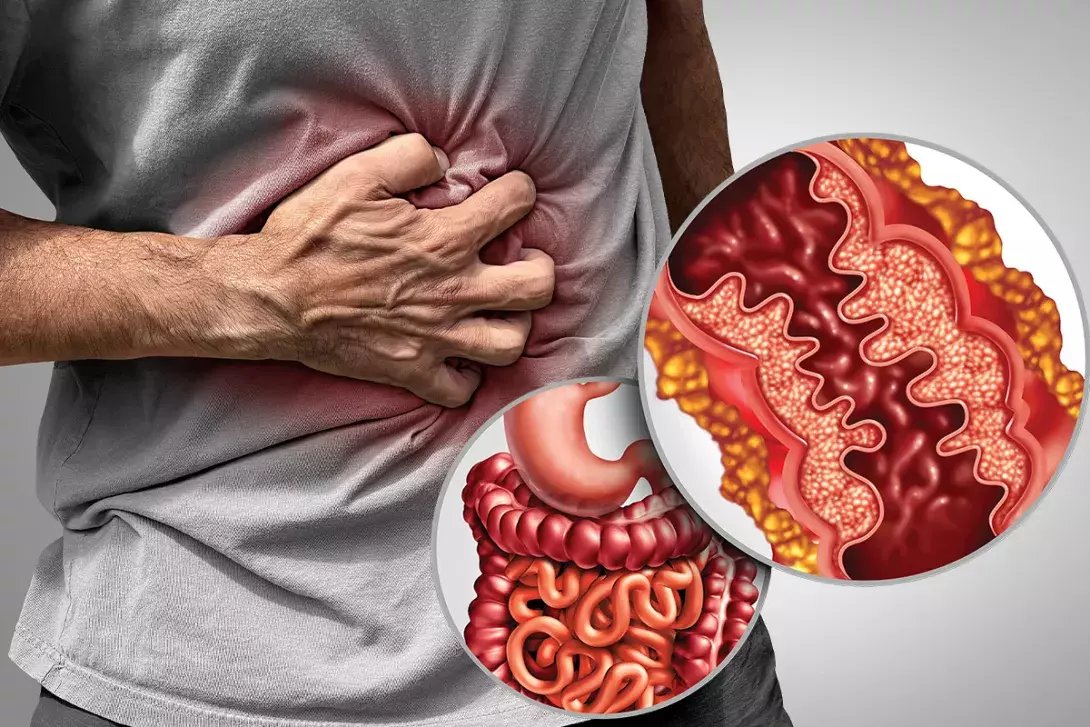Everest Medicines Announces Positive Topline Data from Phase 3 Trial of Etrasimod for Ulcerative Colitis in Asia
16 July 2024 | Tuesday | News

Image Source : Public Domain
Everest Medicines (HKEX 1952.HK, "Everest", or the "Company"), a biopharmaceutical company focused on the discovery, clinical development, manufacturing and commercialization of innovative therapeutics, announced positive topline data results of the maintenance period from a multi-center Phase 3 clinical trial of etrasimod in Asia for the treatment of subjects with moderately-to-severely active ulcerative colitis (UC). VELSIPITY® (etrasimod) is an effective and convenient, once-daily, oral treatment for patients with moderately-to-severely active UC that has already been approved in the U.S. and E.U., and other countries, by Everest's licensing partner, Pfizer. VELSIPITY® is the first and only advanced oral UC therapy approved for use in patients 16 years of age or older in the EU. In Everest territories, the Pharmaceutical Administration Bureau of the Macau Special Administrative Region, China has approved the New Drug Application (NDA) for VELSIPITY® in April of this year.
"These positive results are both clinically meaningful and statistically significant, which further demonstrate that etrasimod has the potential to be a breakthrough option for patients with moderately-to-severely active UC " said Rogers Yongqing Luo, Chief Executive Officer of Everest Medicines. "The number of UC patients in China is projected to double from 2019 to approximately one million by 2030, highlighting the urgent need for novel treatments. Etrasimod is expected to provide a new oral therapy option with a favorable benefit-risk profile for UC patients. Autoimmune disease is a key therapeutic focus for Everest. We plan to submit an NDA to China's National Medical Products Administration this year to benefit more Chinese patients as soon as possible."
The positive results are from a multicenter, randomized, double-blind and placebo-controlled Phase 3 trial of etrasimod 2mg conducted in Asian countries. This is the largest Phase 3 trial of moderately-to-severely active ulcerative colitis in Asia completed to date, with 340 eligible subjects randomized to treatment with etrasimod or placebo. Patients with inadequate response or intolerance to at least one conventional, biologic, or Janus kinase (JAK) inhibitor therapy were randomized to receive etrasimod 2mg once-daily or placebo for 12 weeks of induction treatment. Patients who had completed 12- week of induction treatment and responded to induction treatment were re-randomized into the 40-week maintenance period to receive 2mg once-daily etrasimod or placebo.
The primary efficacy endpoints for the induction period and maintenance period were the proportions of patients achieving clinical remission at Induction Week 12 and Maintenance Week 40, respectively. The key secondary endpoints of the study were the proportion of patients achieving endoscopic improvement and clinical response at Week 12 for the induction phase and at Week 40 for the maintenance phase. Safety was assessed throughout the study, with treatment-emergent adverse events (TEAEs) graded by the Common Terminology Criteria for Adverse Events (CTCAE).
The data of maintenance treatment confirmed that, after 40 weeks of treatment, etrasimod demonstrated significant clinical and statistical improvements over placebo in the primary and all key secondary endpoints (p<0.0001), and other secondary endpoints (including mucosal healing and endoscopic normalization, both p<0.0001). The safety profile of etrasimod was consistent with previous studies, with no new safety signals observed. Detailed results will be presented at upcoming academic conferences.
At the 12th Asian Organization for Crohn's and Colitis (AOCC 2024) held in Xi'an from June 14 to 16 this year, detailed data from the 12-week induction phase of the Phase III clinical study of etrasimod in Chinese patients were announced. A total of 320 subjects from China were randomly assigned to receive induction treatment with etrasimod 2mg or placebo. The results showed that the clinical remission rate for patients treated with etrasimod 2mg was 24.5%, compared to 5.8% for those treated with placebo (difference 19.7%, p<0.0001). Compared to the placebo group, patients treated with etrasimod demonstrated significant clinical and statistically significant improvements in all key secondary endpoints. The endoscopic improvement rate was 37.0% for the etrasimod group and 10.7% for the placebo group (difference 28.0%, p<0.0001); the clinical response rate was 57.4% for the etrasimod group and 28.2% for the placebo group (difference 30.6%, p<0.0001). The safety results for Chinese patients were consistent with previous studies, with no new safety signals observed.
Most Read
- How Does GLP-1 Work?
- Innovations In Magnetic Resonance Imaging Introduced By United Imaging
- Management of Relapsed/Refractory Multiple Myeloma
- 2025 Drug Approvals, Decoded: What Every Biopharma Leader Needs to Know
- BioPharma Manufacturing Resilience: Lessons From Capacity Expansion and Supply Chain Resets from 2025
- APAC Biopharma Review 2025: Innovation, Investment, and Influence on the Global Stage
- Top 25 Biotech Innovations Redefining Health And Planet In 2025
- The New AI Gold Rush: Western Pharma’s Billion-Dollar Bet on Chinese Biotech
- Single-Use Systems Are Rewiring Biopharma Manufacturing
- The State of Biotech and Life Science Jobs in Asia Pacific – 2025
- Asia-Pacific Leads the Charge: Latest Global BioSupplier Technologies of 2025
- Invisible Threats, Visible Risks: How the Nitrosamine Crisis Reshaped Asia’s Pharmaceutical Quality Landscape
Bio Jobs
- Sanofi Turns The Page As Belén Garijo Steps In And Paul Hudson Steps Out
- Global Survey Reveals Nearly 40% of Employees Facing Fertility Challenges Consider Leaving Their Jobs
- BioMed X and AbbVie Begin Global Search for Bold Neuroscience Talent To Decode the Biology of Anhedonia
- Thermo Fisher Expands Bengaluru R&D Centre to Advance Antibody Innovation and Strengthen India’s Life Sciences Ecosystem
- Accord Plasma (Intas Group) Acquires Prothya Biosolutions to Expand Global Plasma Capabilities
- ACG Announces $200 Million Investment to Establish First U.S. Capsule Manufacturing Facility in Atlanta
- AstraZeneca Invests $4.5 Billion to Build Advanced Manufacturing Facility in Virginia, Expanding U.S. Medicine Production
News











